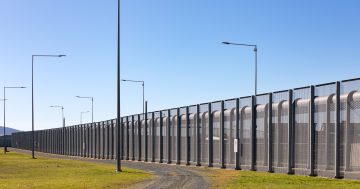
Justice reinvestment is the way forward.
While crime rates are going down and incarceration rates are going up, we’re committed to building communities—not prisons. We’re taking the smarter approach to the criminal justice system.
A growing population, together with more awareness around domestic, family and sexual assault, are part of the story. More effective policing, reduced bail rates, social issues like unemployment, poverty, substance abuse and family trauma, particularly among young offenders, also have an impact.
As imprisonment rates rise, the challenges of housing growing rates of detainees in the Territory’s only correctional facility are only going to increase.
We cannot keep building larger and larger prisons in the hope that this will simply deal with the issue of rising imprisonment rates. I don’t believe we can—in good conscience—maintain the status quo. It just doesn’t work.
But if there’s less crime, there’s less imprisonment. Less crime also means fewer victims and a safer community for all.
That’s where justice reinvestment come in.
Justice reinvestment reallocates taxpayer dollars from prisons and invests them back into communities where it’s needed most.
It means making investments early on, in our community, to address the particular problems facing individuals and communities, long before they engage the criminal justice system.
Justice reinvestment means being honest about the reality of incarceration in Australia: that we cannot continue to simply spend millions, if not billions, building prisons. We can choose to reinvest some of this effort into building communities.
With the right supports in place, we can help change the trajectories of those coming in and out of the prison system. This means thinking about the whole person – their behaviour, their backgrounds, and their capacity to change when provided with the right opportunities.
Justice reinvestment requires justice and corrections to be people-focused, rather than just taking a ‘tough on crime’ approach.
That’s why, in an Australian first, the ACT Government has deferred a high-security expansion to the Territory’s only correctional facility.
Instead, we’ll be reinvesting $14.5 million in funds that could otherwise be used to build a bigger prison, and are funding evidence-based programs focused on crime prevention and addressing the actual causes of criminal behaviour.
Not only do we want to urgently stem the flow of people into the prison, but we also want to reduce how this impacts victims and the Canberra community.
In the ACT, as part of our Parliamentary Agreement, we have committed to an ambitious target of reducing recidivism (reoffending rates) by 25 per cent by 2025. Meeting this target will be a challenge—to think differently about how we address our use of imprisonment as a punitive measure, and how this can be done in a safe and supportive way for our community.
Justice reinvestment sees that there can be a better way.
Shane Rattenbury is the ACT Greens Minister for Justice and Corrections.




















